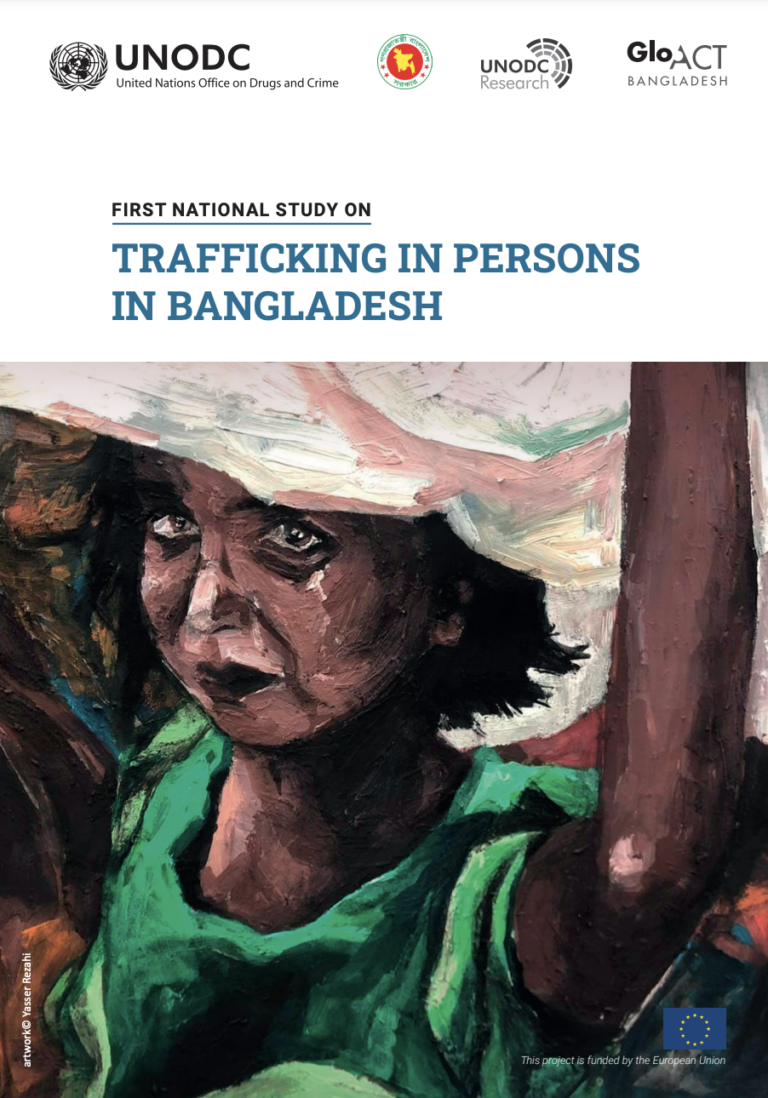Bangladeshi victims of trafficking in persons are identified in many countries across the world, as well as in Bangladesh itself. The country’s geographic location contributes to it not only being a significant origin country of victims regionally, but also a destination for trafficking victims from neighbouring countries and from further afield. The country’s medium human development index (HDI) (0.661), poverty levels, and lack of economic opportunities for many, push people to seek employment abroad, where some end up in situations of trafficking in persons.
Against this backdrop, the First National Study on Trafficking in Persons in Bangladesh examines how the crime is committed and the victims it targets in Bangladesh. The Study is a result of partnership between the Government of Bangladesh and the UN Office on Drugs and Crime (UNODC). To provide a baseline for the trafficking situation in the country, the Study explores trafficking trends, characteristics and routes, as well as examining risk factors and the modus operandi of traffickers, and setting out national responses to the crime.

